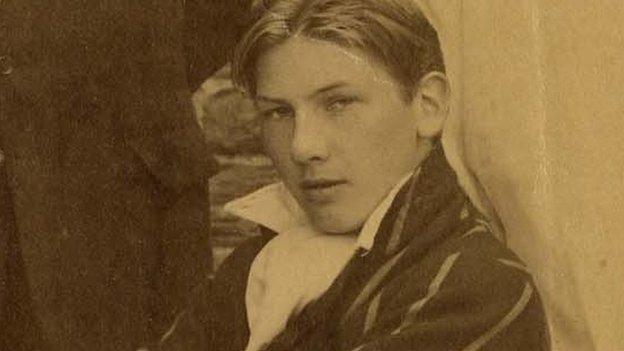1915 WW1 diary gives account of second Christmas truce
- Published
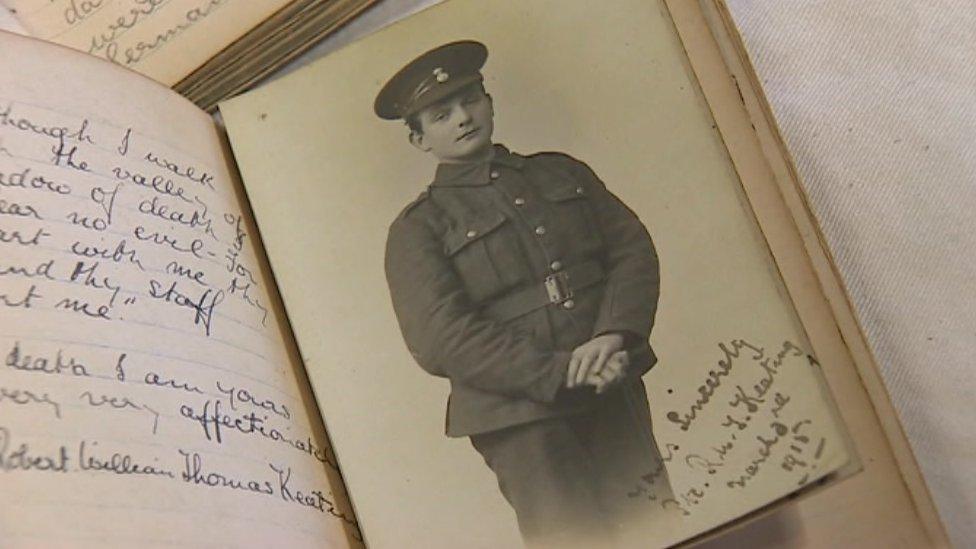
A diary from a World War One soldier has come to light providing details of a Christmas Day truce in 1915.
Pte Robert Keating's account explains how a ceasefire was held by some men despite orders from officers who did not want a repeat of a 1914 truce.
A military historian said the account contradicts reports from the time which said a second truce did not take place.
It has been donated to the archives of Royal Welch Fusiliers (RWF) and is being transcribed at Wrexham Museum.
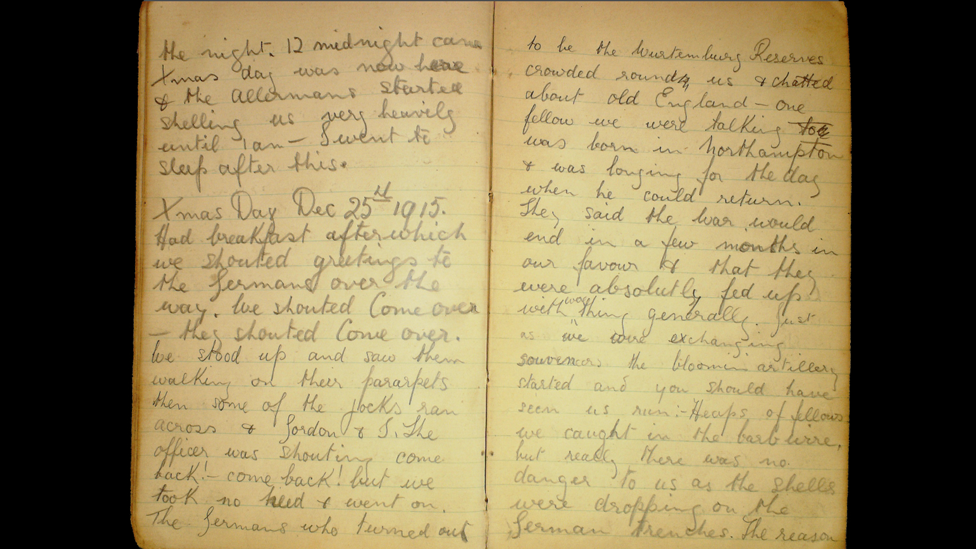
Diary extract: "Xmas Day had breakfast after which we shouted greetings to the German's over the way..."
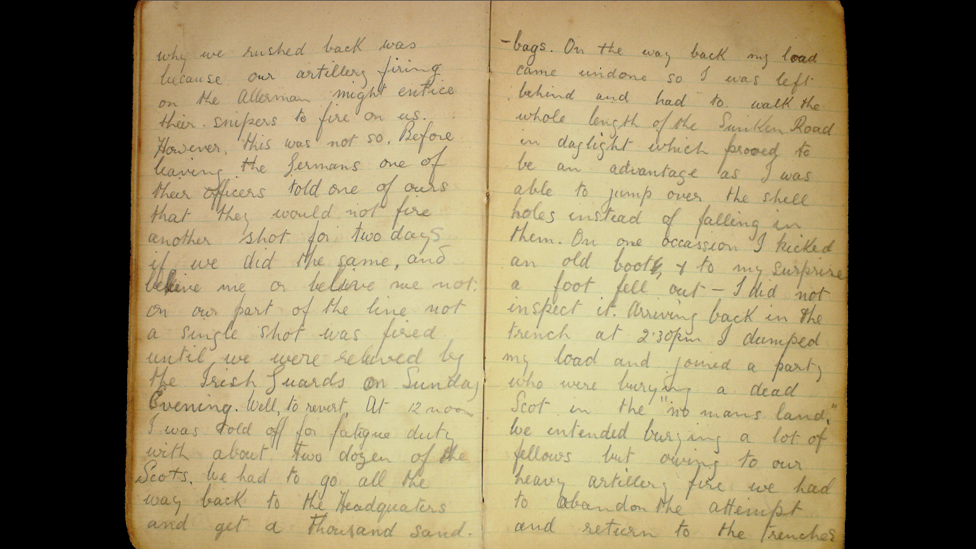
Diary extract: "Before leaving the Germans, one of their officers told one of ours that they would not fire another shot for two days if we did the same"
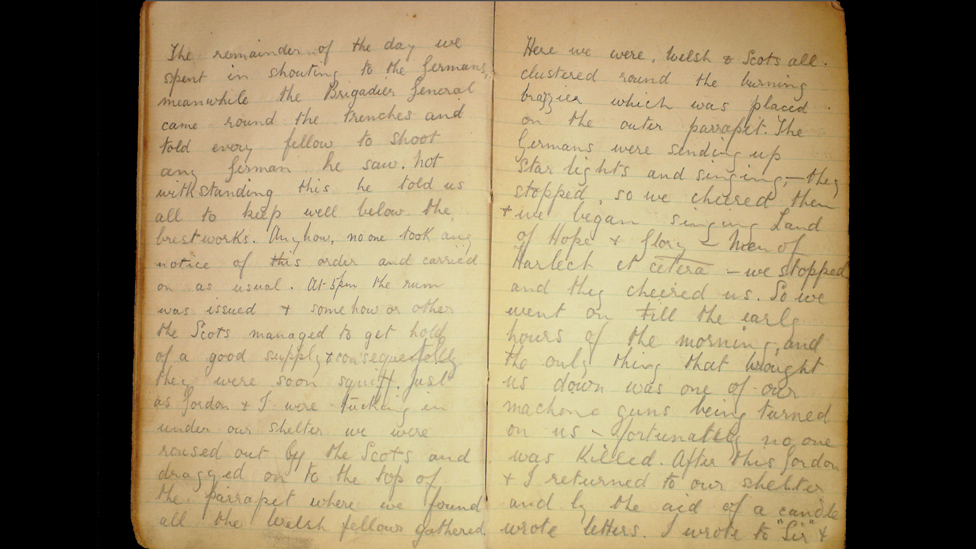
Diary extract: "Here we were Welsh and Scots all clustered around the burning brazier which was placed on the outer parapet. The Germans were sending up star lights and singing - they stopped, so we cheered them and we began singing Land of Hope and Glory and Men or Harlech... we stopped and they cheered us. So we went on till the early hours..."
Military historian Lieutenant General Jonathon Riley, chairman of trustees for the Royal Welch Fusiliers which has a regimental museum at Caernarfon Castle, said there had been other accounts referring to a second Christmas truce but the "emergence of the Keating diary has completed the jigsaw".
He said Keating's diary explained the ceasefire was initiated by German soldiers and followed by a contingent of British soldiers on the Western Front near Laventie, France, despite their orders.
"It has given us a complete picture of what happened over an extensive part of the line," he said.
"For a private soldier he gives us a really valuable insight."
The diary starts from 1914 and covers Keating's deployment to France in December 1915 and finishes in July 1916, the night before the first attempt was made to capture Mametz Wood in northern France, which became the scene one of the fiercest battles of the Somme.
The diary adds to war accounts from other Welsh war poets and writers including David Jones and Llewelyn Wyn Griffith, external whose book, Up to Mametz - and Beyond, also recounted a scene where so-called no man's land briefly became "every man's land" as soldiers from both sides exchanged greetings and bartered.
Keating also explains how British soldiers shouted greetings to the German soldiers "over the way" on the morning of Christmas Day.
Then, when they saw them standing on their parapets, they decided to greet them and "chatted about old England" despite shouts from an officer to return.
Lieutenant General Jonathon Riley said the diary had 'given us a complete picture of what happened over an extensive part of the line'
Keating goes on to say that their German counterparts said they "were absolutely fed up" and believed "the war would end in a few months in our favour".
Later, he tells how a senior officer "came round the trenches and told every fellow to shoot any German he saw" but "no one took any notice".
Then, on Christmas evening, after a "good supply" of rum had been commandeered, he explains how he was roused from his shelter to find Scots Guards and RWF, now known as the Royal Welsh, clustered around a "burning brazier" on top of a parapet.
He writes: "The Germans were sending up star lights and singing - they stopped, so we cheered them and we began singing Land of Hope and Glory and Men of Harlech et cetera - we stopped and they cheered us.
"So we went on till the early hours of the morning and the only thing that brought us down was one of our machine guns being turned on us - fortunately, no one was killed."
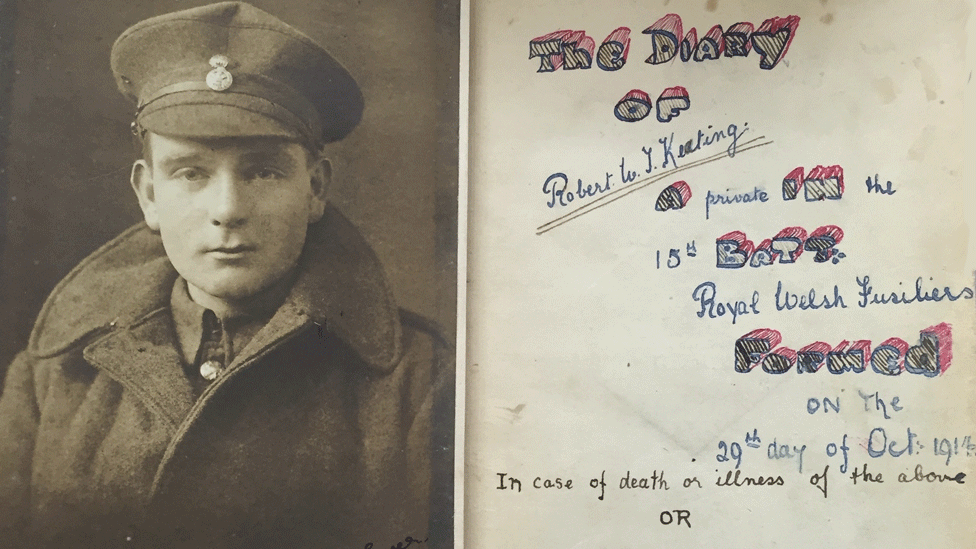
Pte Robert Keating served with the 15 Battalion Royal Welsh Fusiliers, 1st London Welsh
A note on a second volume of the diary said that in the event of Keating's death it was to be sent to the warden of a boys' home in Clapham, south west London.
The 1911 census showed Keating had been a resident and must have been only 16 and, therefore, under-age when he signed up in 1914.
The diary is being transcribed by volunteers at Wrexham Museum which holds some RWF archive material and memorabilia.
It was donated by Sue Davies, a former neighbour of Keating, who received it from his widow, Katie, after his death in March, Cambridgeshire, in 1969.
Ms Davies, 59, who now lives in Nottinghamshire, said the Keatings did not have any family and although she spent a lot of time with them she did not know about his war-time experiences until she read the diary.
She described the retired cable and wireless operator as a "quiet man with a wicked sense of humour" who would give his Jack Russell dog, Titch, commands in French.
"I have read the diaries from cover to cover of the years," she said, adding that she handed them to the RWF this summer to ensure their safe-keeping.
"I always knew they were important. But it was more about making sure he was not forgotten," she said.
- Published6 August 2014
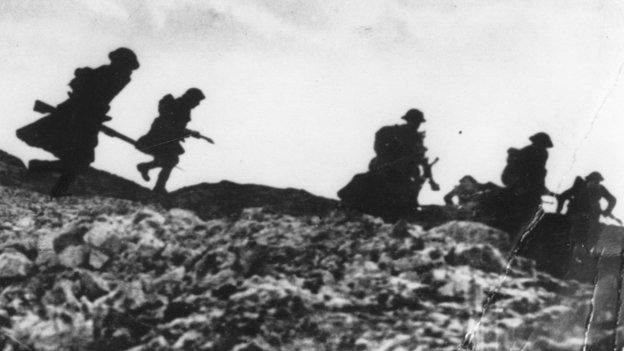
- Published24 June 2014
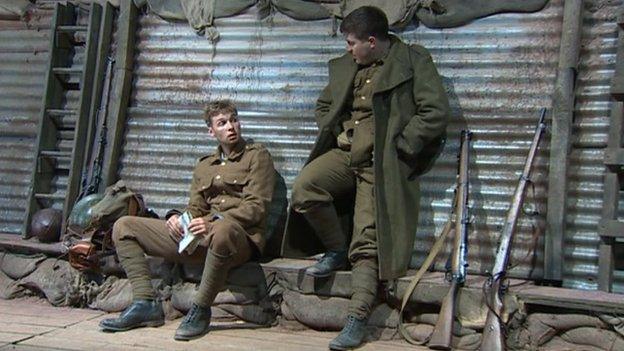
- Published17 May 2014
